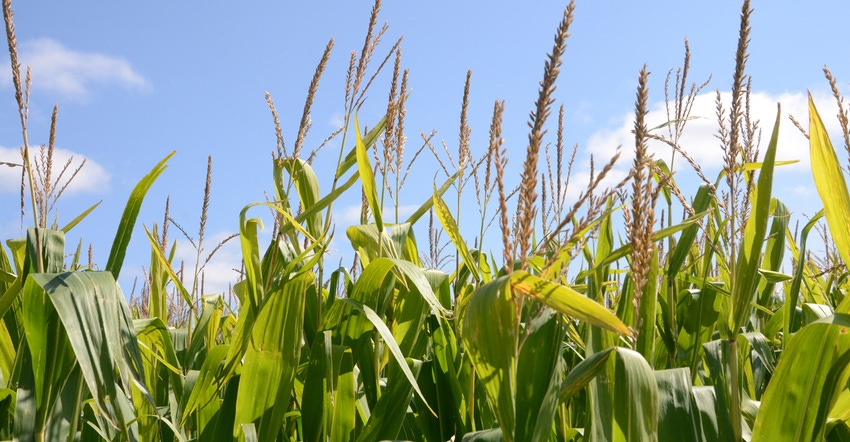November 16, 2020

Back in 2017, during the Farm Progress Show, David Hollinrake shared big news from Syngenta. He had just come on board as the global head of strategy and portfolio management at Syngenta Seeds, and he announced the company was going to invest $400 million in this part of its business.
The goal then? “We’re aiming to make NK Seeds the No. 2 commercial seed provider in the market,” he told Farm Progress back then. So where is the company today?
During a recent media briefing, Syngenta Seeds shared where the company is, the work ahead, and its go-to-market strategy for two brands — NK Seeds and Golden Harvest.
Soybeans moving ahead
Travis Kriegshauser, strategic marketing manager, soybeans, shared that the 2020 season showed improved performance for Syngenta Seeds. “We’re seeing entire fields average 80 bushels per acre,” he notes. “I’ve been in soybean breeding and plant genetics for almost 20 years now, and I remember back in 2003 we were striving just to get to 100 bushels per acre — and that 100-bushel mark is showing up all over the place.”
Syngenta has long pushed the fact that for seed and genetic traits, it wants to offer customers a choice. And for soybeans, Kriegshauser reiterates that — noting that farmers buying from the company, either at an NK Seeds retailer or from a Golden Harvest salesperson — they will be able to choose varieties that contain either the new XtendFlex or the Enlist 3 trait. The company also offers the LLGT27 trait for glufosinate and glyphosate tolerance.
Corn hybrid line filling out
Drew Showalter, strategic marketing manager, corn, says 2019 was a breakout year for the company. “We had a 110-day hybrid that was a top 10 performer in the FIRST [Farmers’ Independent Research of Seed Technologies] trials, and we added to that in 2020 with another 110-day hybrid,” he says. “In the central and eastern Corn Belt, we are performing well.”
The company also offers a 115-day hybrid that has performed well in the market. The key is that the company is taking that 110-day and 115-day germplasm and pairing it with key traits, including Viptera for aboveground pests and Duracade for belowground pests. These are the traits that are part of the Agrisure 5222 stack.
Enogen expands
About 10 years ago, Syngenta rolled out its first Enogen hybrids. This trait provides, in the seed, the enzyme needed for ethanol production. And ethanol plants do pay farmers a premium for that corn. In addition, it turns out the same trait has value for livestock, offering as much as a 5% boost in feed efficiency simply by switching in this corn trait to the ration.
Showalter notes that contracting for Enogen acres for 2021 is off to a rapid start. “That technology is delivering for our fuel partners … and we’re off to a rapid start with our feed sales,” he adds. “And we’re going to launch five new hybrids for 2021 introduction.”
When Hollinrake announced the $400 million investment in seeds in 2017, much of that was to bring in new talent and enhance the sales organization. Today, NK Seeds is a brand focused on retailers, while the Golden Harvest name sells through seed salespeople.
Eric Boeck, head of marketing, explains that the two-channel approach serves two different kinds of farmers. “One customer relies on the retailer, and the other relies on the seed adviser,” he says. “When we advance products, we’re advancing them specifically for those channels. There is some crossover in hybrids and varieties, but what we’re seeing more and more is more differentiation, because of the different type of ground and the different types of farmers for these channels.”
Syngenta Seeds keeps pushing ahead, aiming for growing market share.
About the Author(s)
You May Also Like






